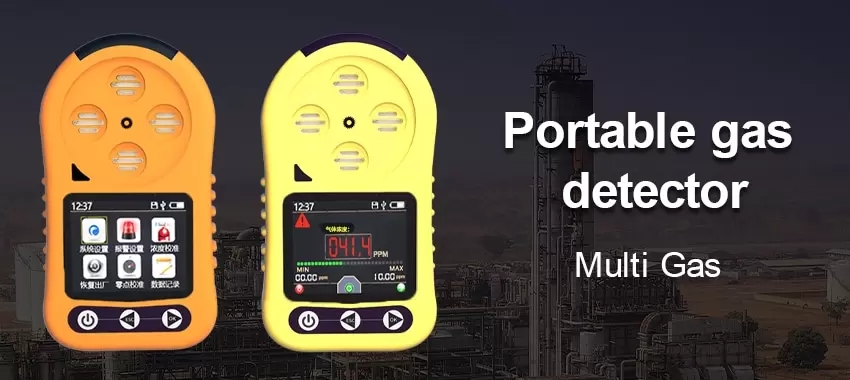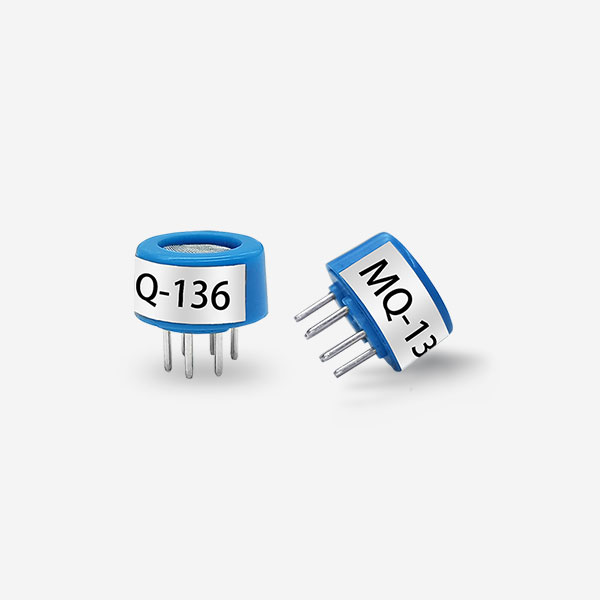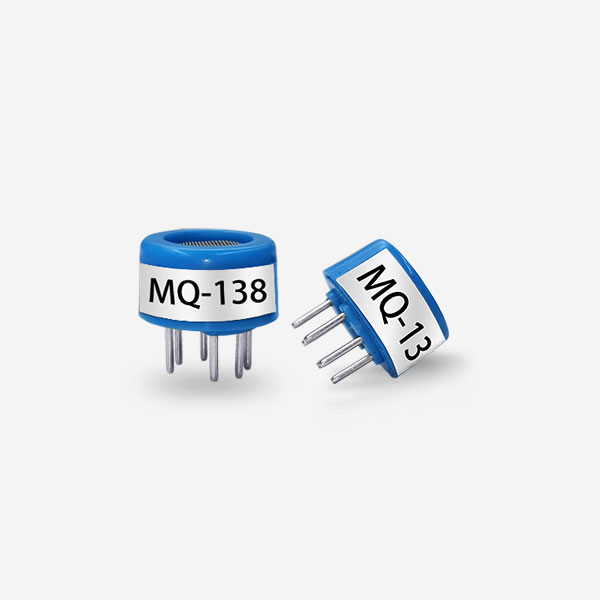Hydrogen sensors
A Hydrogen Sensors senses hydrogen (H2) concentration in the air. These analyzers are used for personal protection in hazardous gas environments. They are also found in industrial settings, battery storage centers, and hydrogen fuel cell facilities. Hydrogen is an important alternative source of energy storage, but can become dangerous if a leak occurs and accumulates indoors.
How do you detect hydrogen with a hydrogen sensor?
Hydrogen is detected using a measuring instrument known as a Hydrogen Sensor. These devices are specific to hydrogen gas. Hydrogen Sensors are composed of electronics and an H2 sensor.
The gas sensor converts the detected hydrogen gas concentration to an electronic signal for analysis by the onboard microprocessor. From there, the processor outputs the reading to the display. If the measured amount of H2 exceeds the pre-set values, alarms will be triggered to warn the user. Other functions, such as instructing a relay to switch on a fan or ventilation system, are also common.
What Is a Portable Hydrogen Gas Sensor?
A portable hydrogen sensor is an instrument used to analyze the concentration of hydrogen in the air. These small gas detectors have a long-lasting battery, large screen that displays the hydrogen levels, and a belt clip to connect to clothing. The devices also have LED, vibration, and buzzer alarms.

A hydrogen gas detector is sometimes called an H2 monitor, a hydrogen sniffer, a hydrogen analyzer, or hydrogen gas tester. These names all refer to a hydrogen gas detector.
What Does a Hydrogen Detector Measure?
A hydrogen gas detector senses hydrogen (H2) in the air and displays the levels in parts per million (ppm) concentration.
While most hydrogen detectors detect low ppm levels, others are designed to measure higher levels of concentration %LEL.
What Is Hydrogen Gas?
Hydrogen has the chemical symbol H2. It is a very light gas, a physically small compound, and becomes highly flammable at concentrations greater than 4%.
Because it is a very useful gas, hydrogen production has tripled since 1975. Its growth has also resulted in an increased demand for gas detection instrumentation.
We use hydrogen in refined gas products, in energy storage, as a coolant in power generation and in the chemical industry.
Interestingly enough, hydrogen gas does not interact with the body and is non-toxic when inhaled. However, it can act as an asphyxiant at a high concentrations where it may displace oxygen levels.
What Is the Difference Between Hydrogen (H2) and Hydrogen Sulfide (H2S) Gas?

There is a big difference.
Although their chemical symbols are very similar, H2 and H2S are two completely different gases. Click here for more information on Hydrogen Gas Detectors.
Hydrogen Gas Detector for Personal Protection
The majority of hydrogen gas detectors are portable. We use these hydrogen sensors with lithium batteries that we can clip directly to our clothes. These detectors provide continuous personal protection with LED, buzzer, and vibration alarms. Two varieties exist:
- Low level (0 - 1000 ppm): We put sensors on early warning and are able to sniff out low levels of hydrogen. These units employ electrochemical sensors.
- EX LEL (0 - 100% LEL): Display detector values in the LEL range. These units employ catalytic bead pellistor (combustible) sensors.
How does a Hydrogen Detector work?
The Hydrogen Sensors comprises an electronic component and a hydrogen sensor. The H2 gas sensor converts the detected gas concentration to an electronic signal for analysis by the onboard microprocessor. From there, the processor outputs the reading to the display. If the H2 level exceeds the preset value, there will be an alarm, and the sensor will alert the user.
 : +86 155 8830 2704
: +86 155 8830 2704 : jxdziot@gmail.com
: jxdziot@gmail.com
